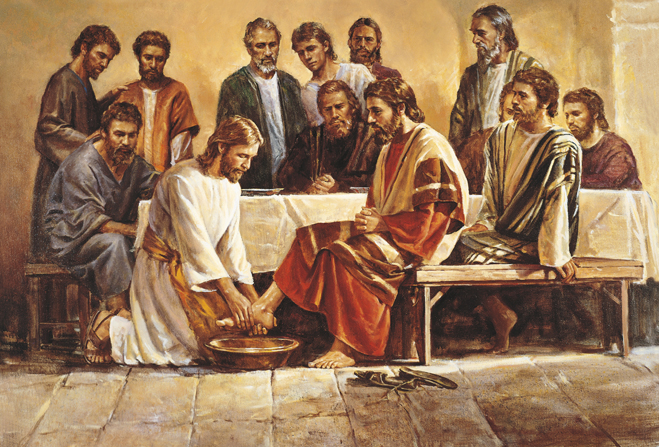Divine Attributes of Jesus Christ: Filled with Charity and Love
Prayerfully study this material and seek to know what to share. How will understanding the divine attributes of the Savior increase your faith in Him and bless those you watch over through visiting teaching? For more information, go to reliefsociety.lds.org.
This is part of a series of Visiting Teaching Messages featuring divine attributes of the Savior.

The Influence of Righteous Women, by Julie Rogers
The Guide to the Scriptures defines charity as “the highest, noblest, strongest kind of love” (“Charity”).
It is the pure love of Jesus Christ. As we learn of Jesus Christ and
strive to become like Him, we will begin to feel His pure love in our
lives and be prompted to love and serve others as He would. “Charity is
having patience with someone who has let us down,” said President Thomas S. Monson.
“It is resisting the impulse to become offended easily. It is accepting
weaknesses and shortcomings. It is accepting people as they truly are.
It is looking beyond physical appearances to attributes that will not
dim through time. It is resisting the impulse to categorize others.”1
In
the Book of Mormon, we learn the great truth that we “pray unto the
Father with all the energy of heart, that [we] may be filled with this
love, which he hath bestowed upon all who are true followers of his Son,
Jesus Christ; that [we] may become the sons [and daughters] of God;
that when he shall appear we shall be like him, for we shall see him as
he is; that we may have this hope; that we may be purified even as he is
pure” (Moroni 7:48).
Additional Scriptures
From Our History
“A
sister who had recently been widowed was grateful for visiting teachers
who mourned with her and comforted her. She wrote: ‘I was in desperate
need of someone to whom I could reach out; someone who would listen to
me. … And they listened. They comforted me. They wept with me. And they
hugged me … [and] helped me out of the deep despair and depression of
those first months of loneliness.’
“Another
woman summed up her feelings when she was the recipient of true charity
from a visiting teacher: ‘I knew that I was more than just a number on
the record books for her to visit. I knew that she cared about me.’”2
Like
these sisters, many Latter-day Saints around the world can attest to
the truth of this statement by President Boyd K. Packer (1924–2015),
President of the Quorum of the Twelve Apostles: “How consoling it is to
know that no matter where [a family may] go, a Church family awaits
them. From the day they arrive, he will belong to a quorum of the
priesthood and she will belong to Relief Society.”3
Consider This
How is Christ our perfect example of love and charity?



